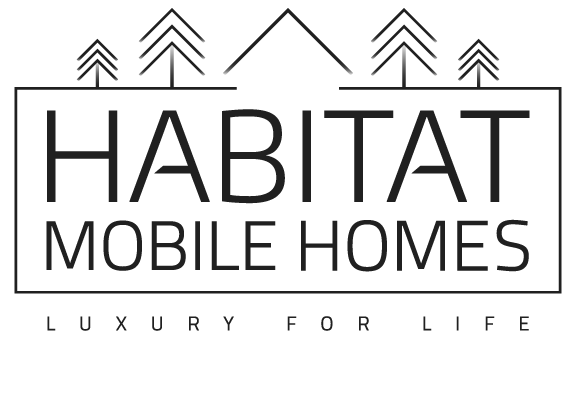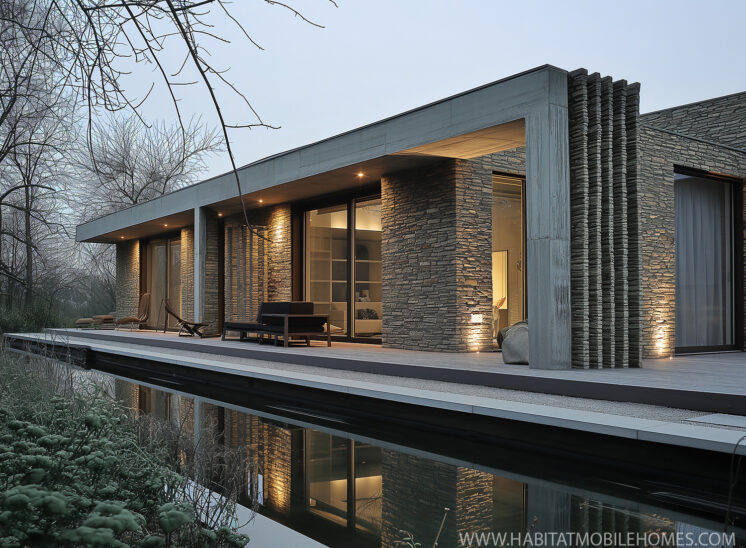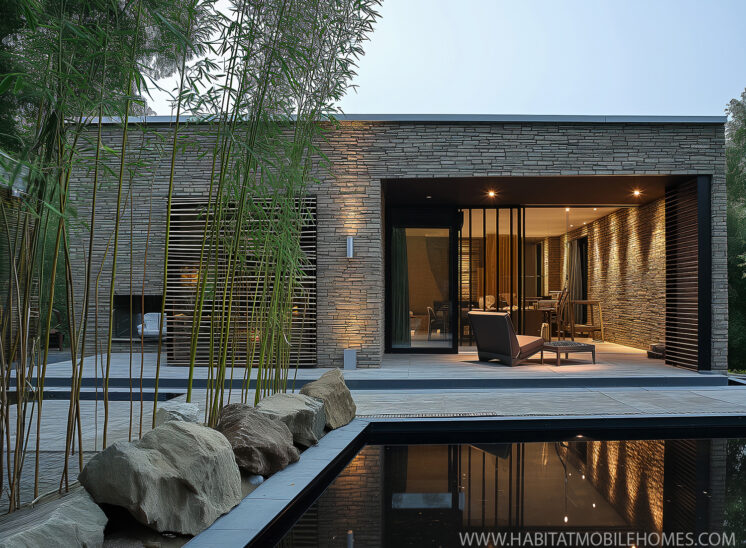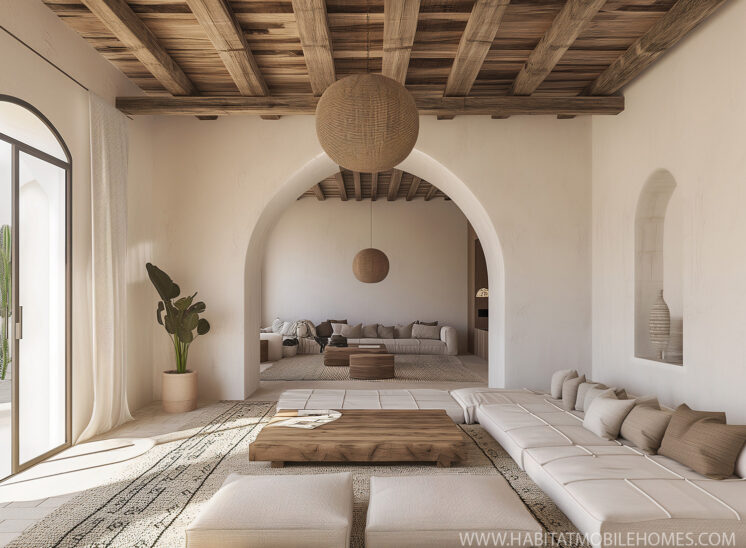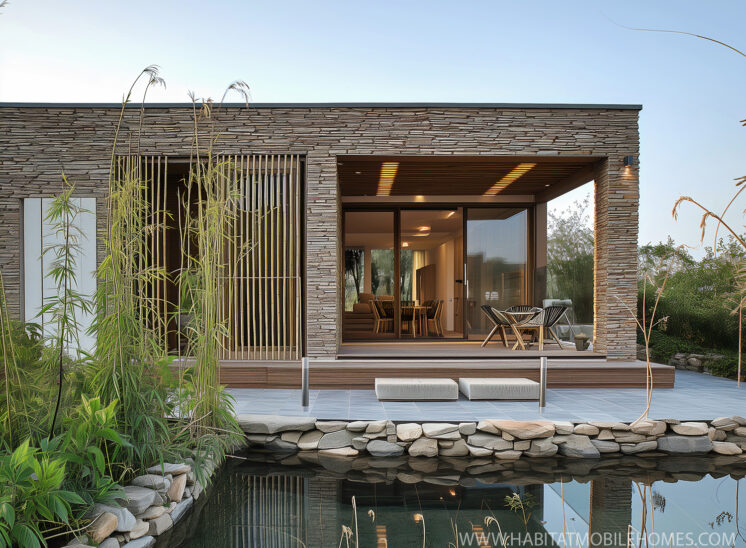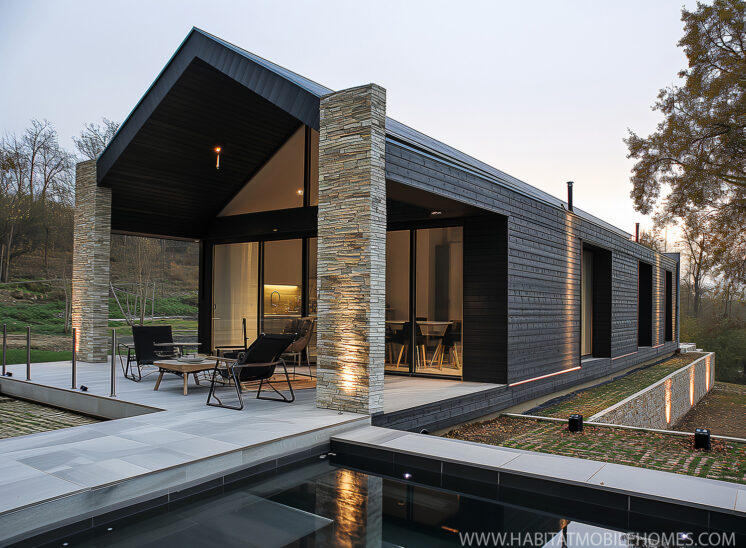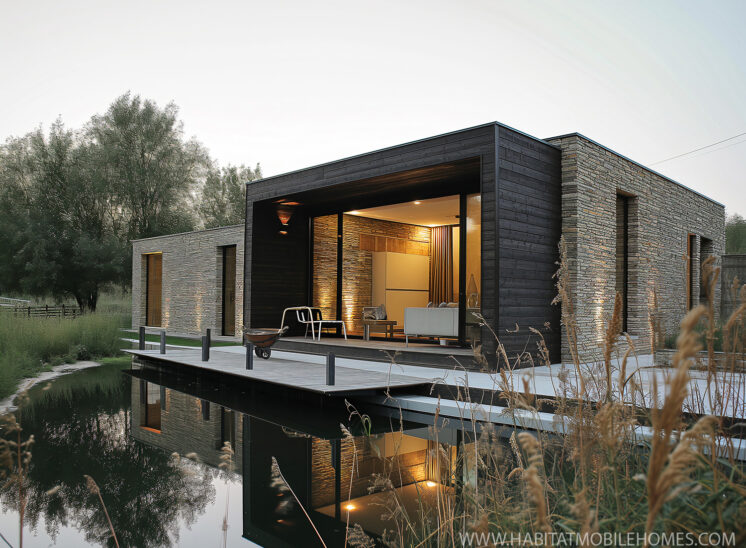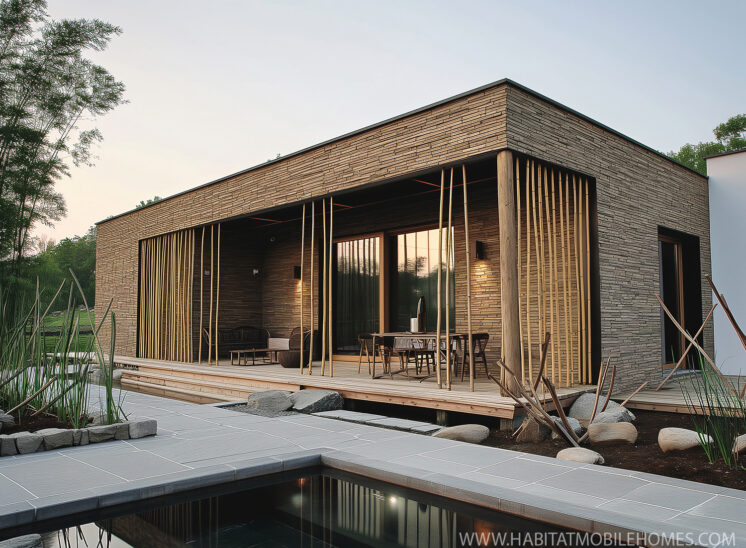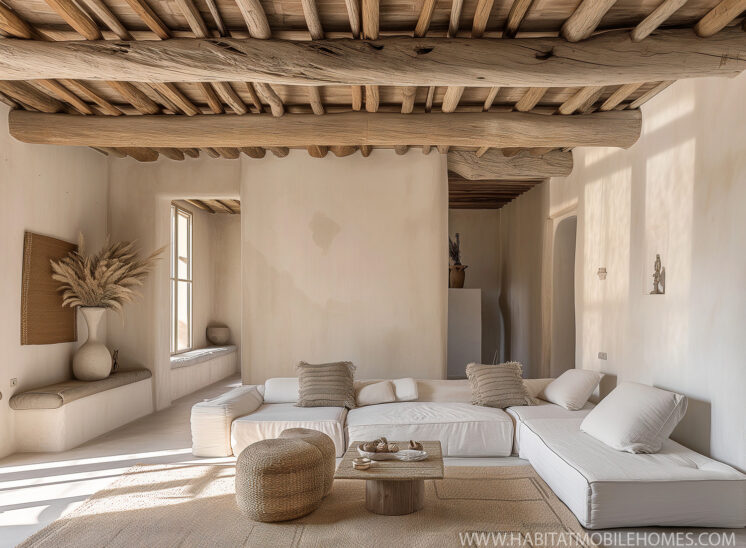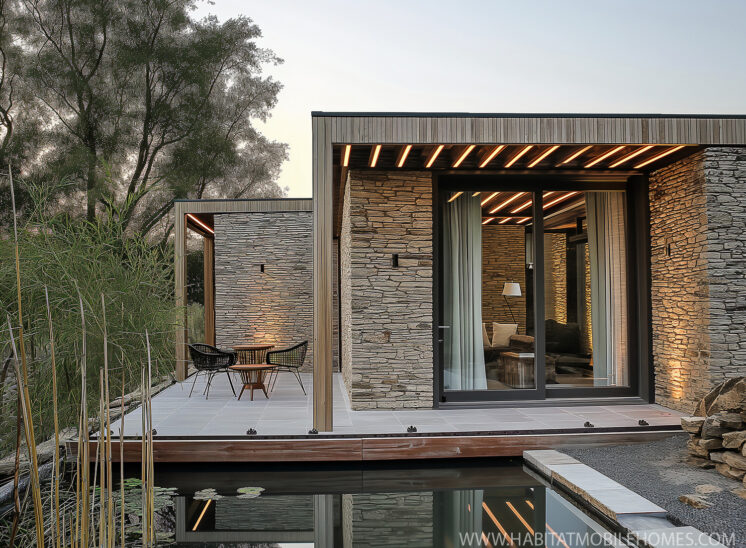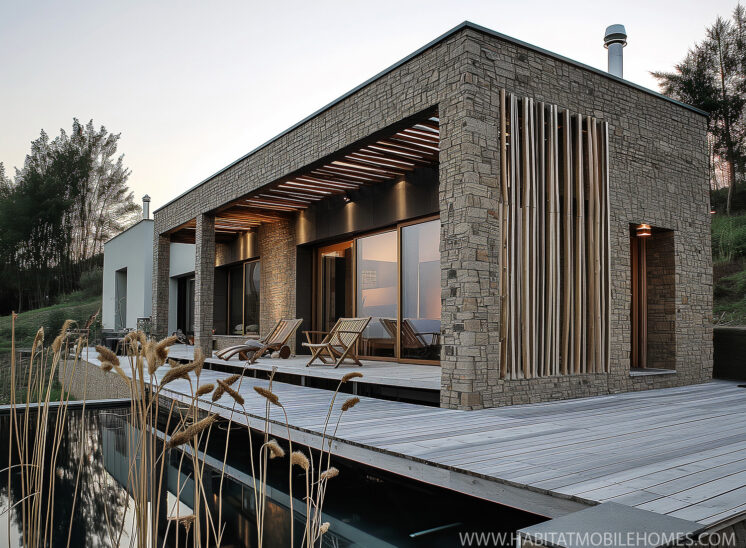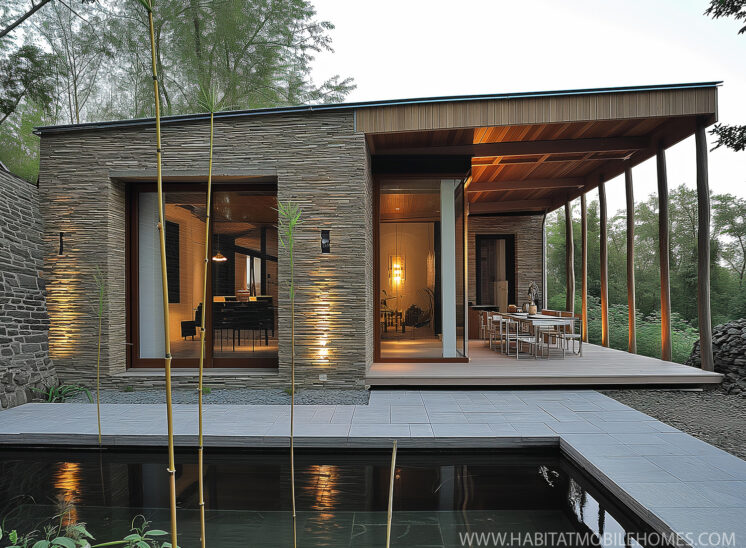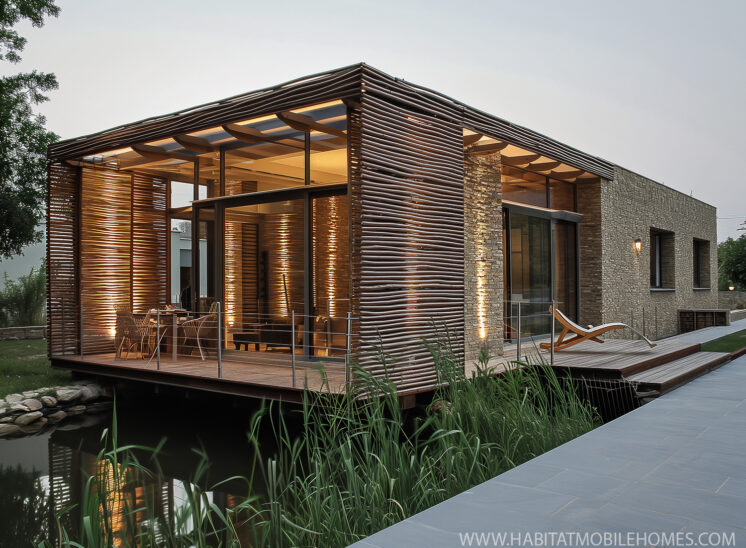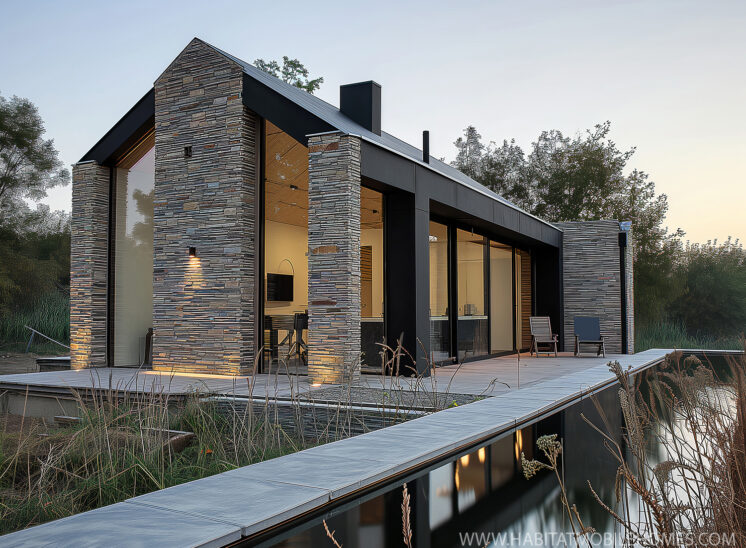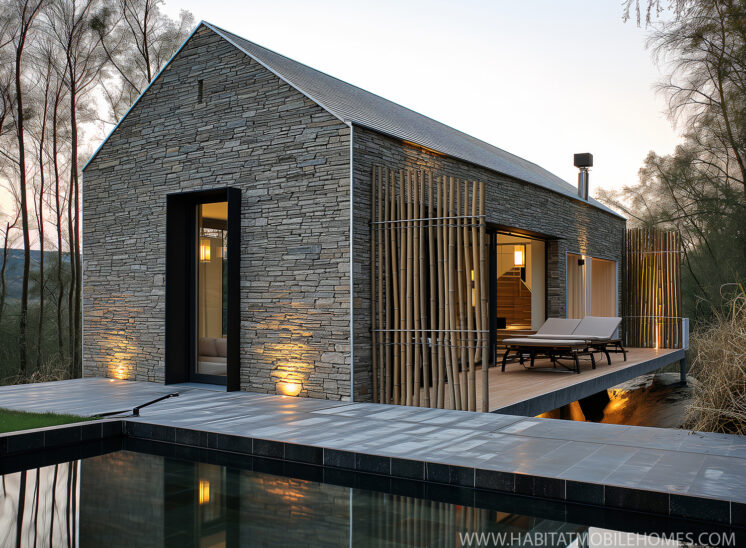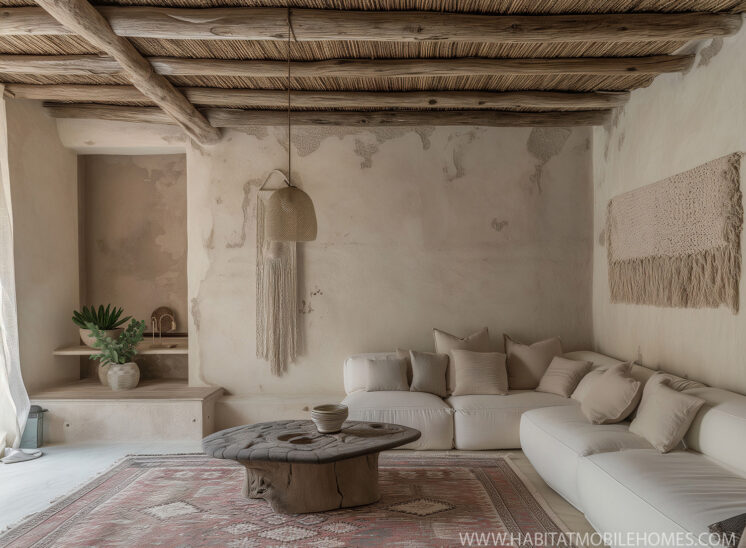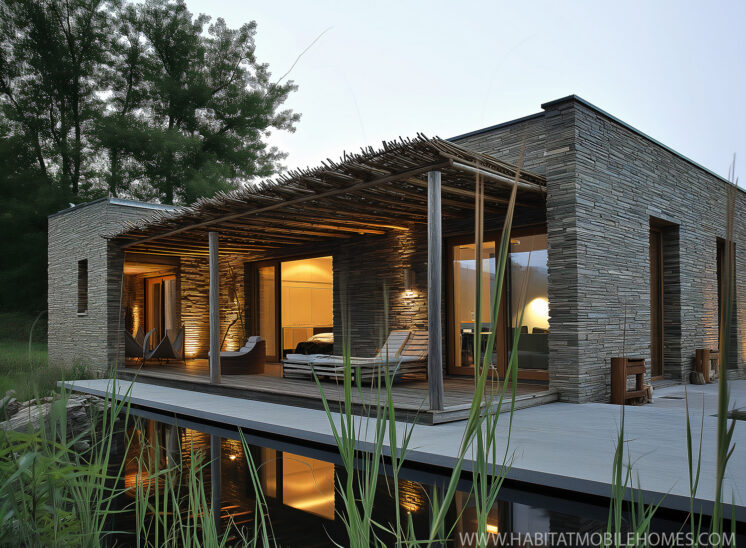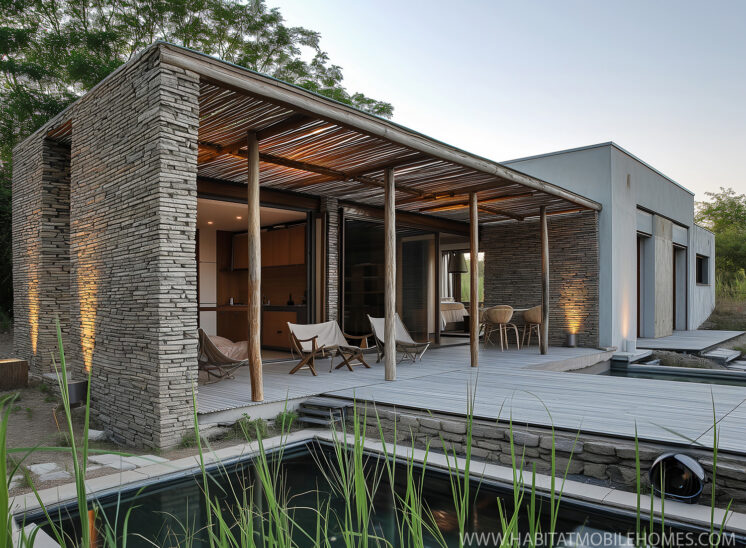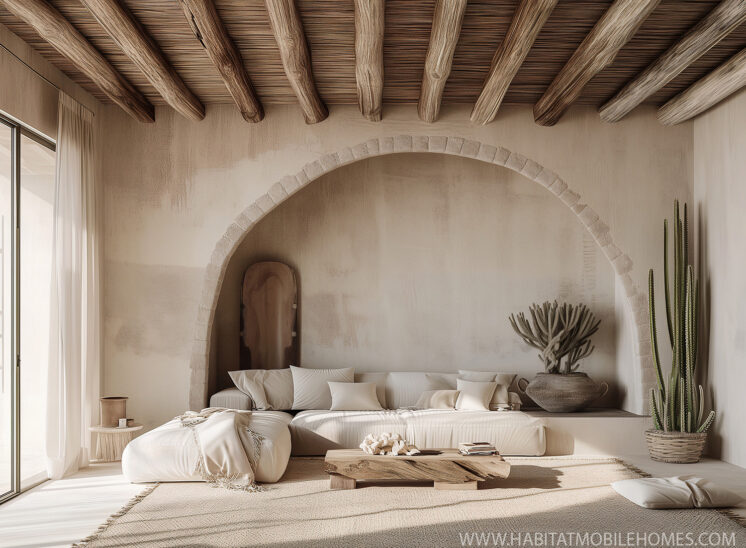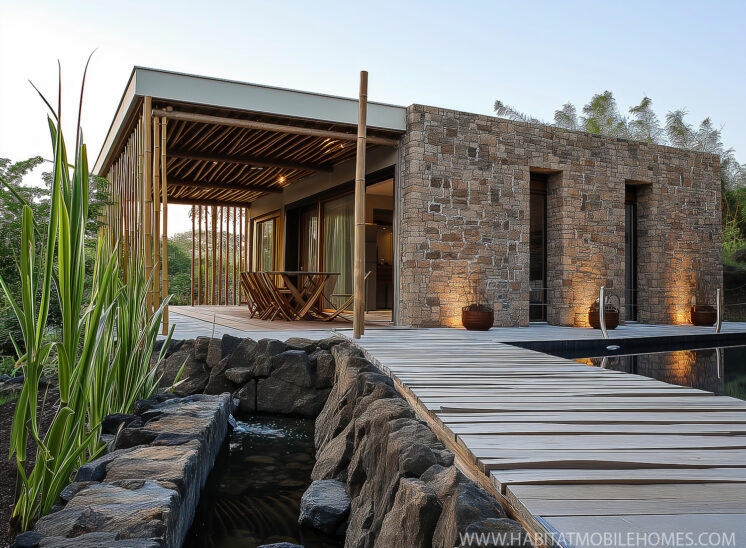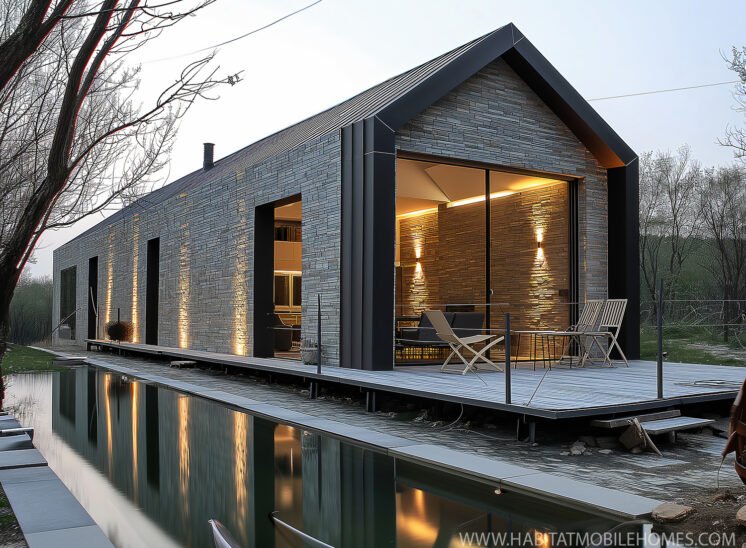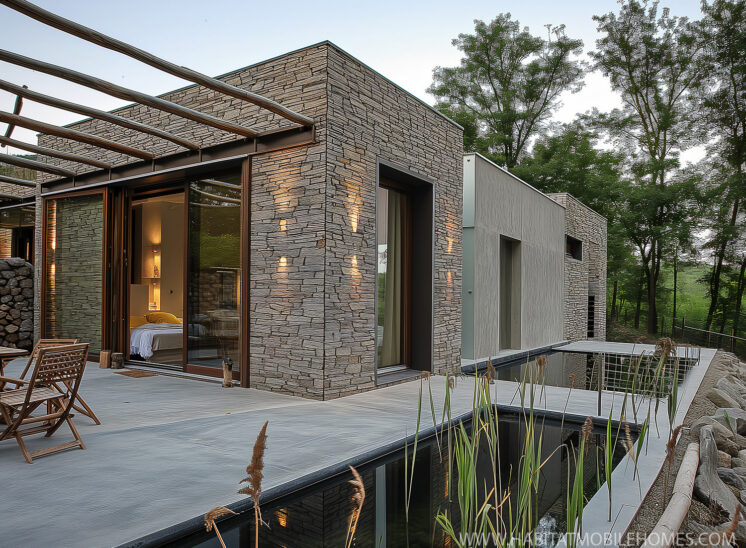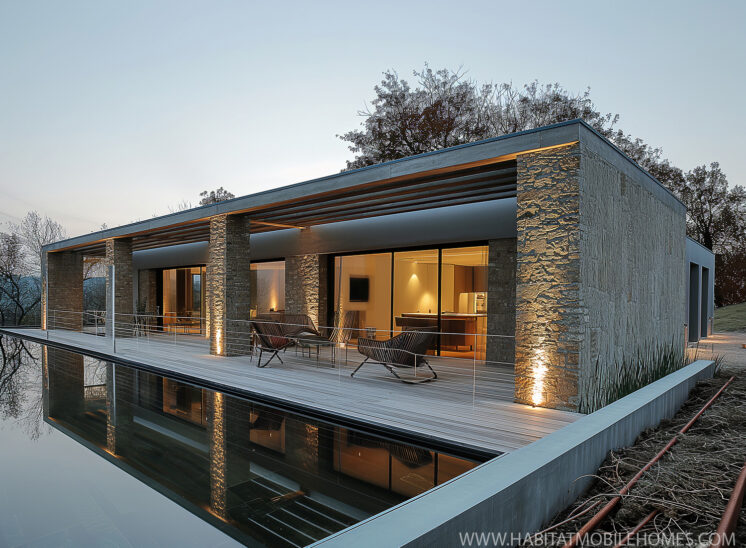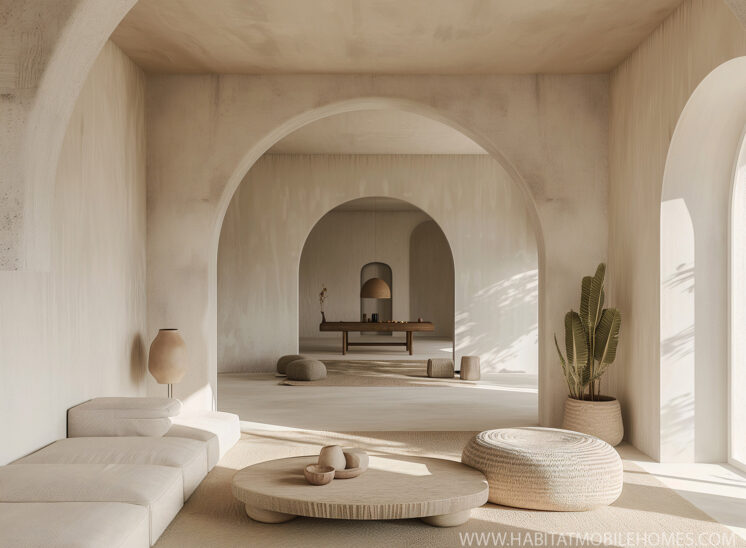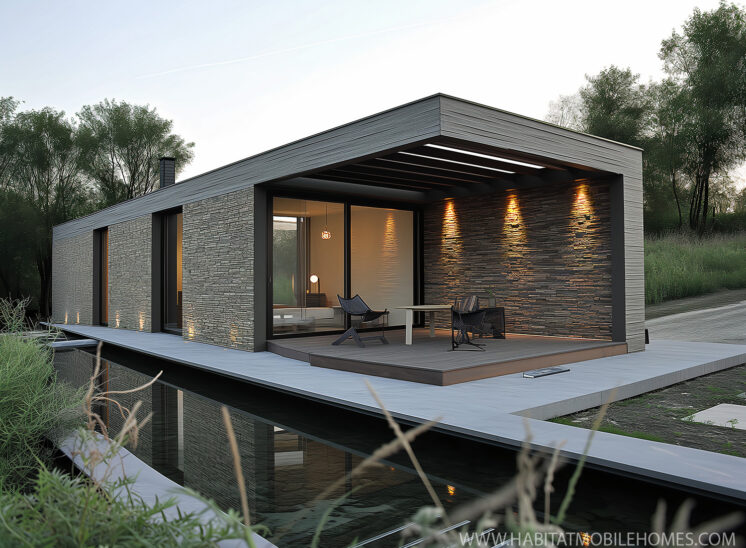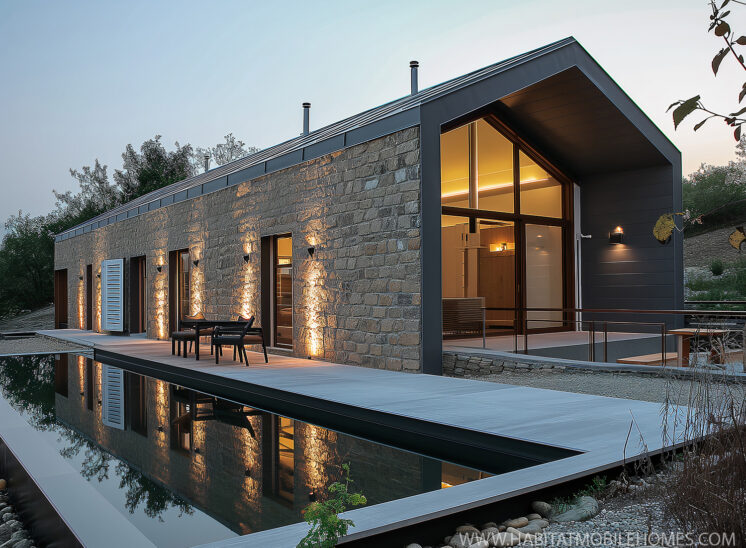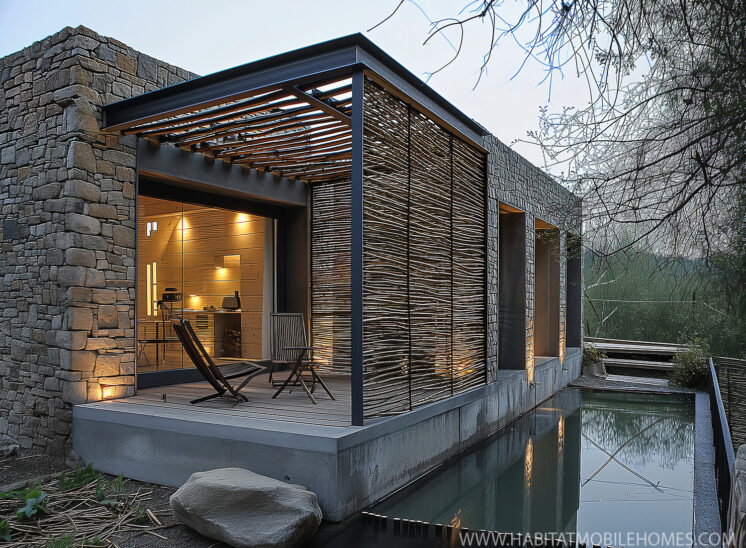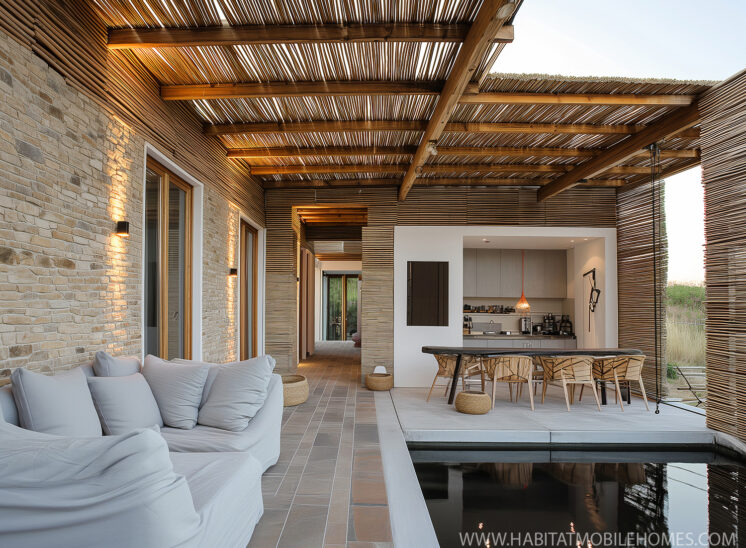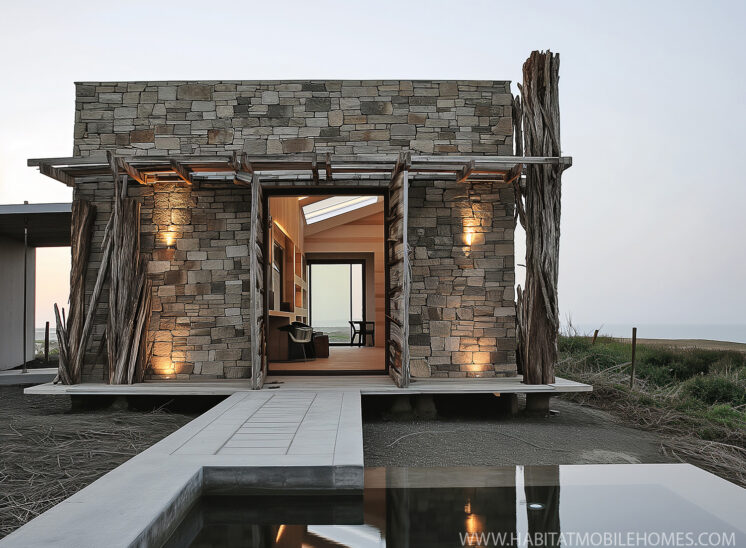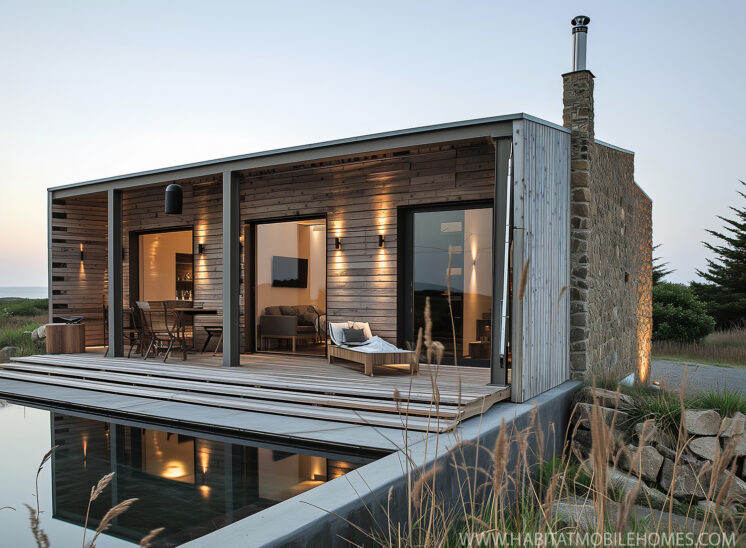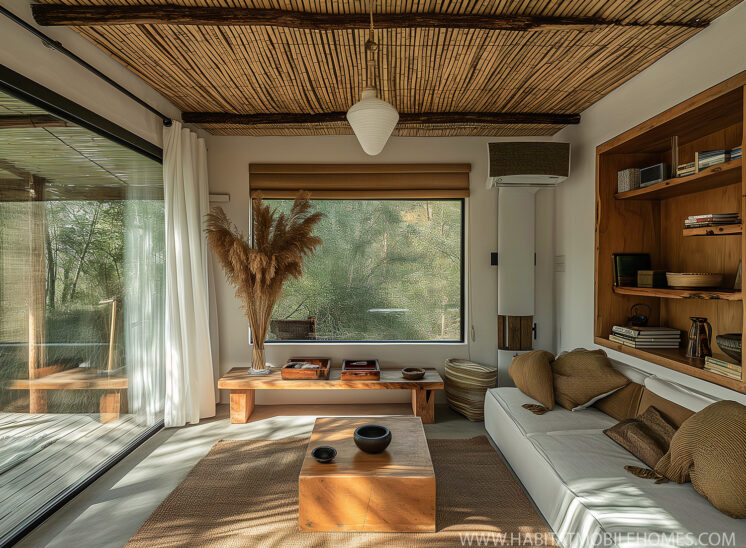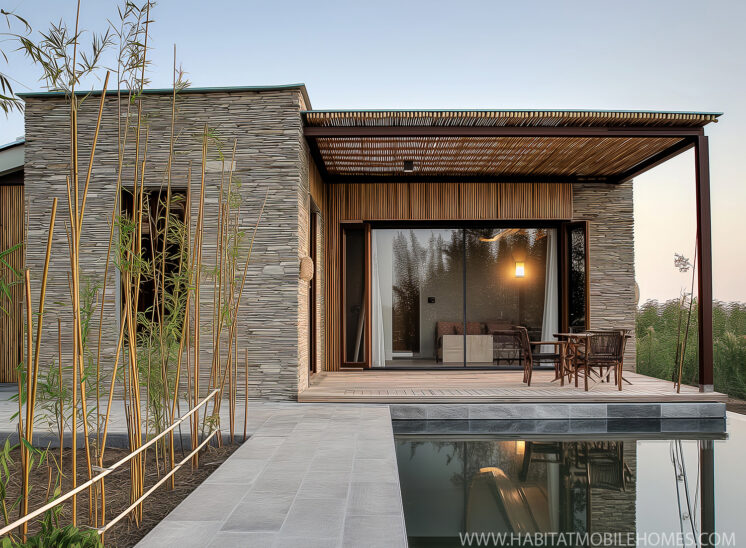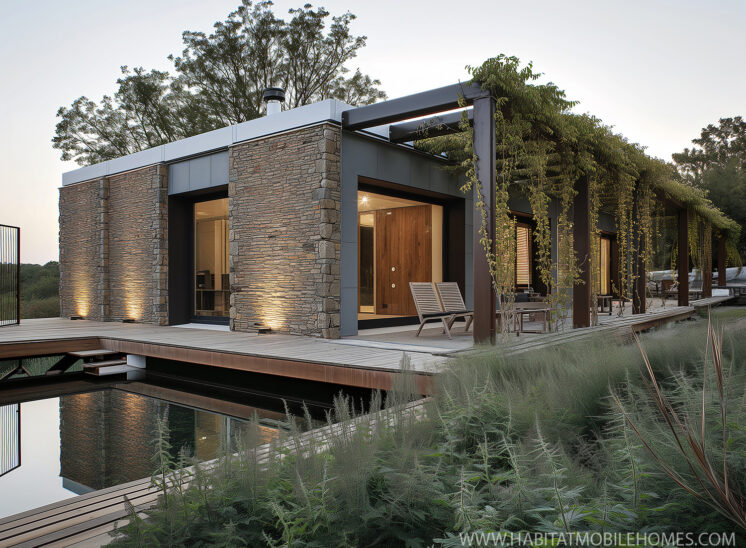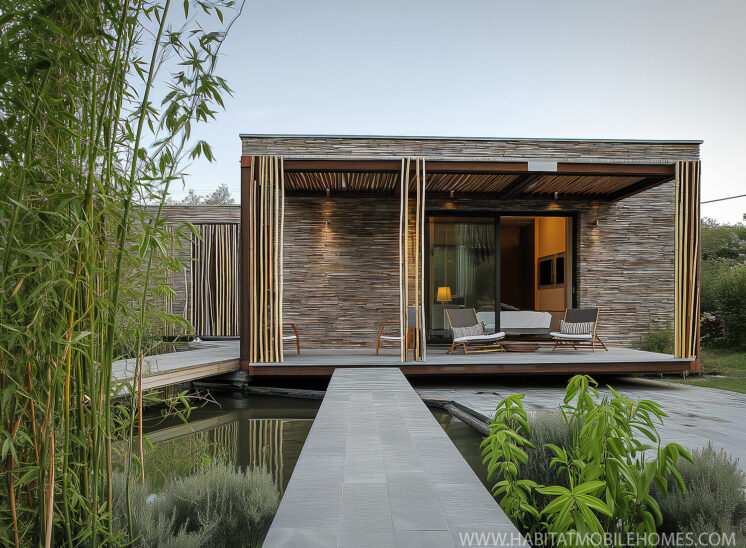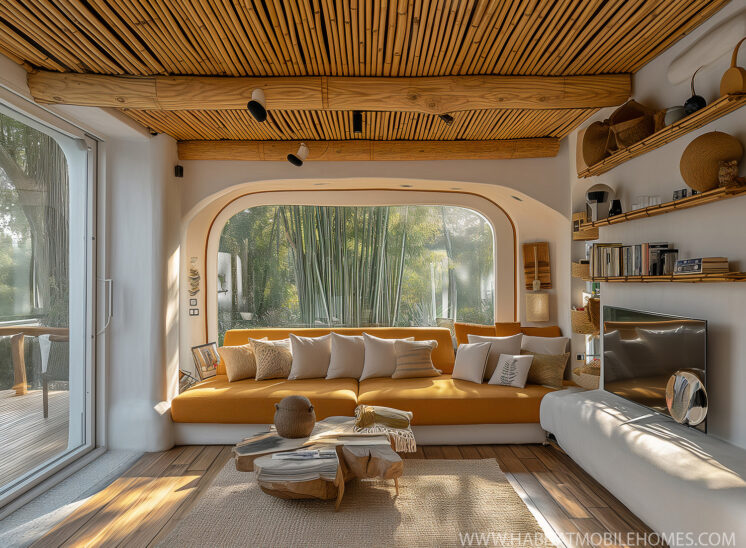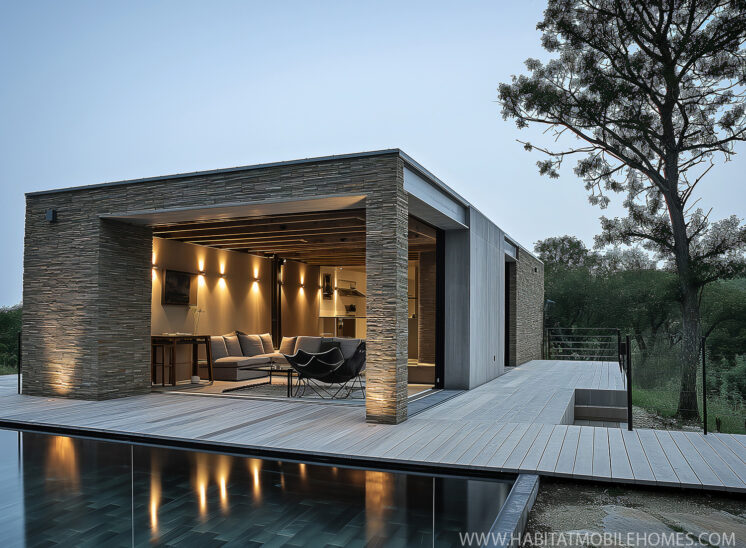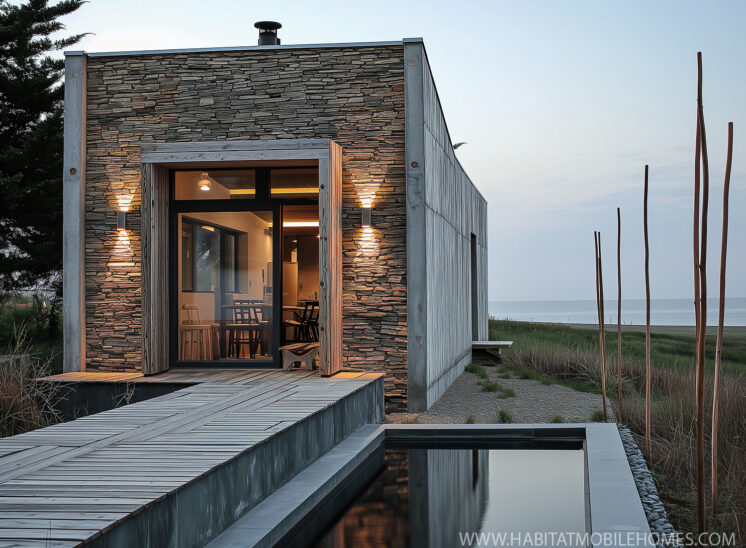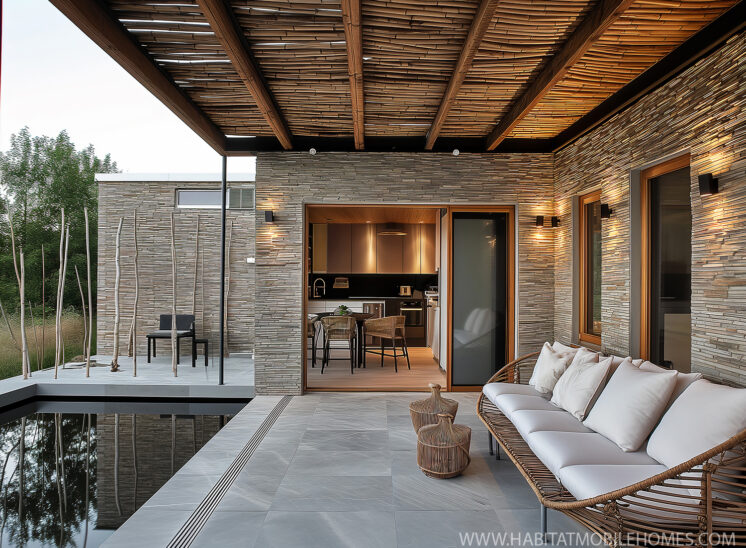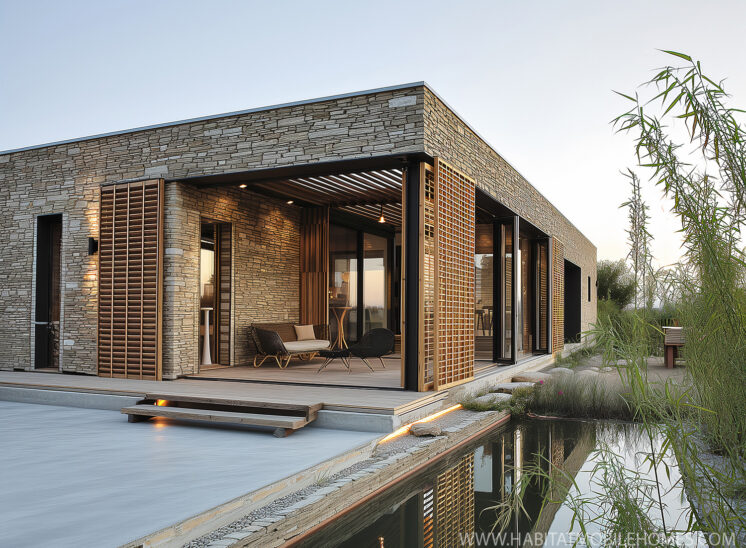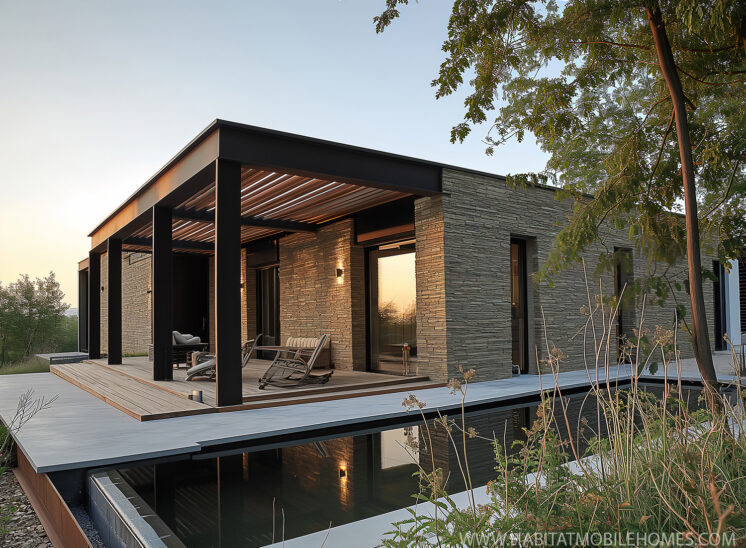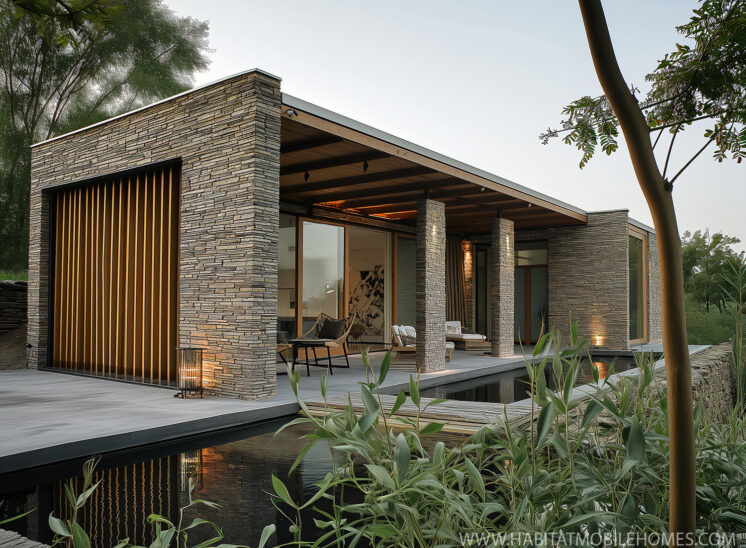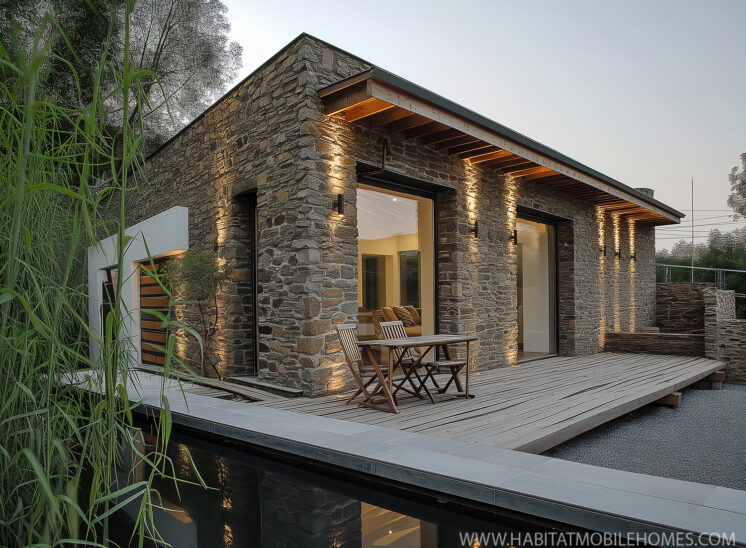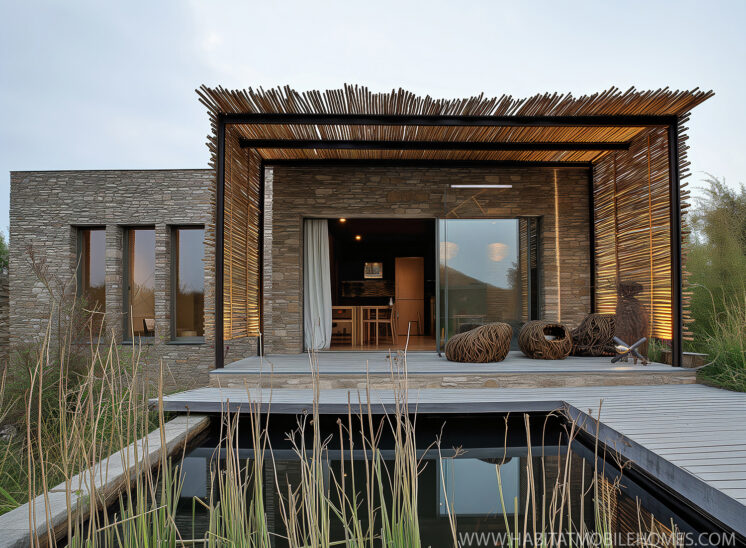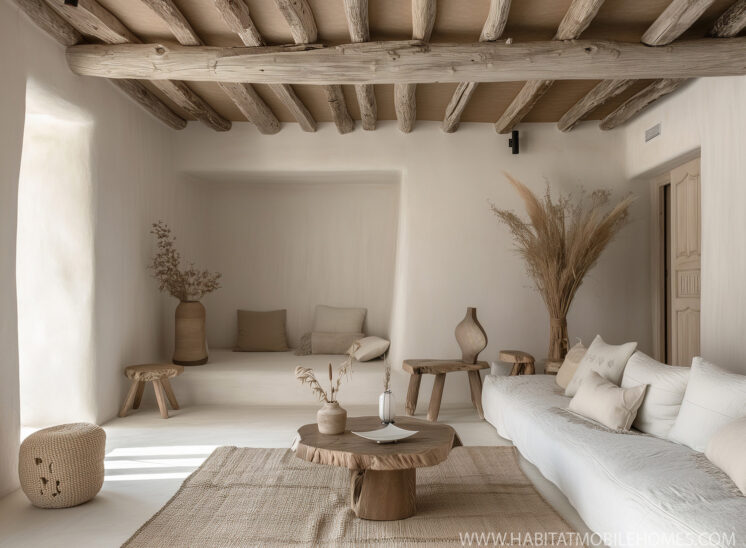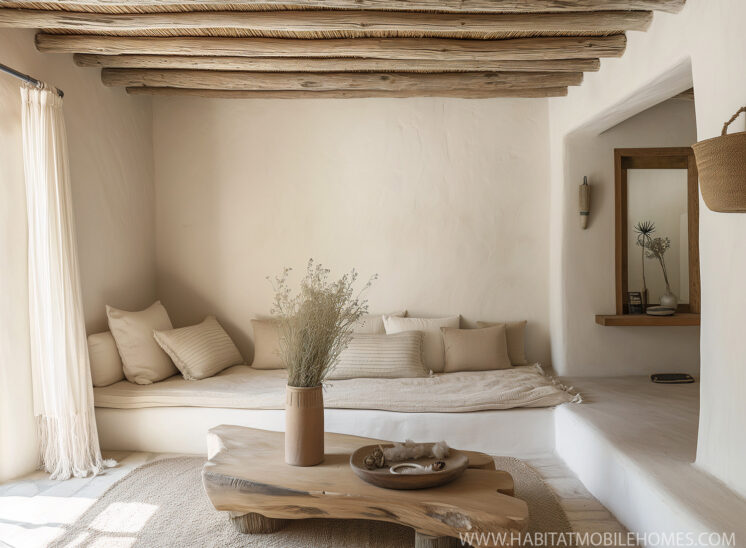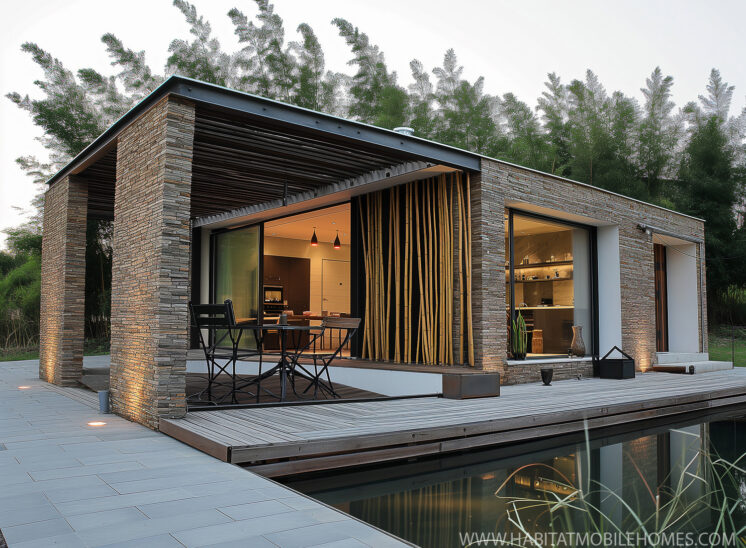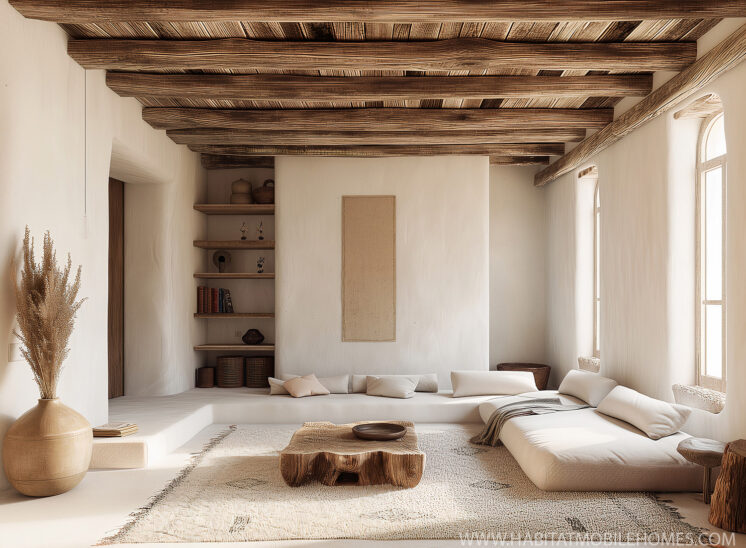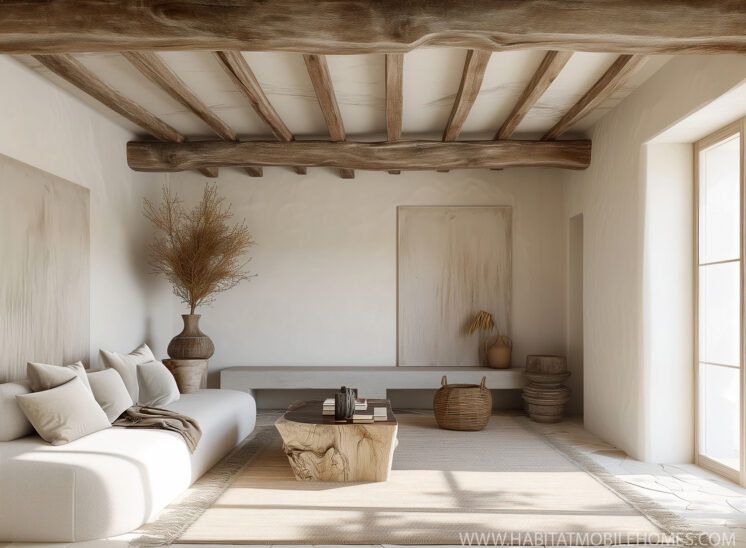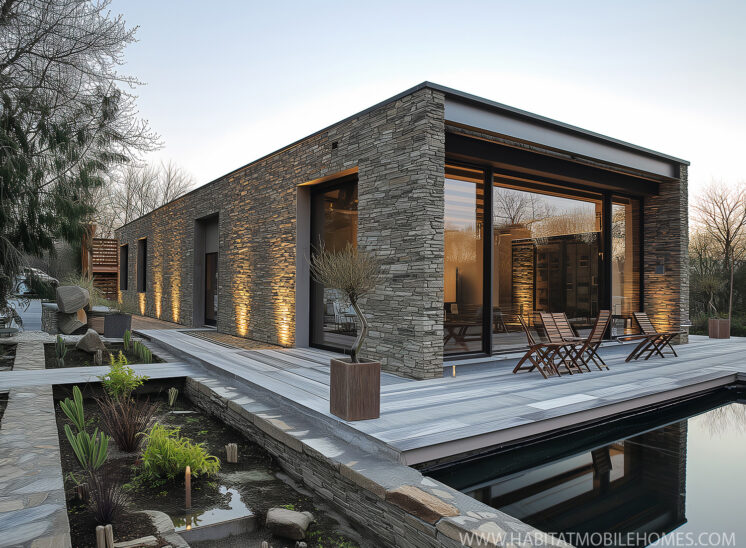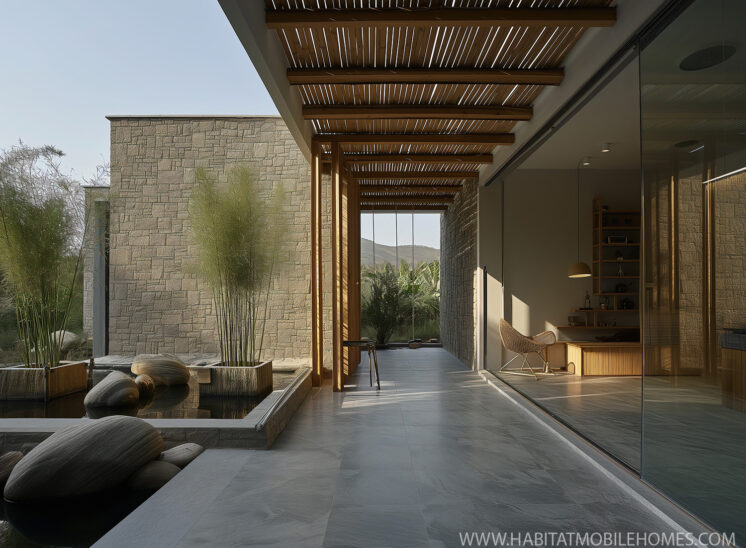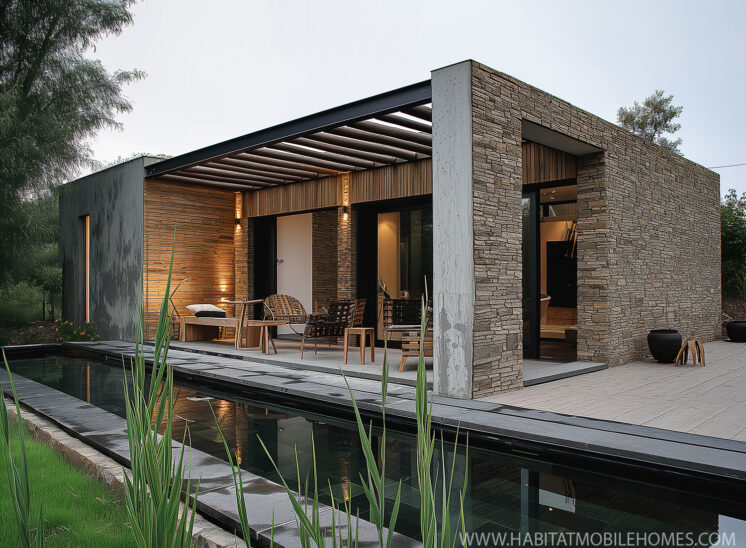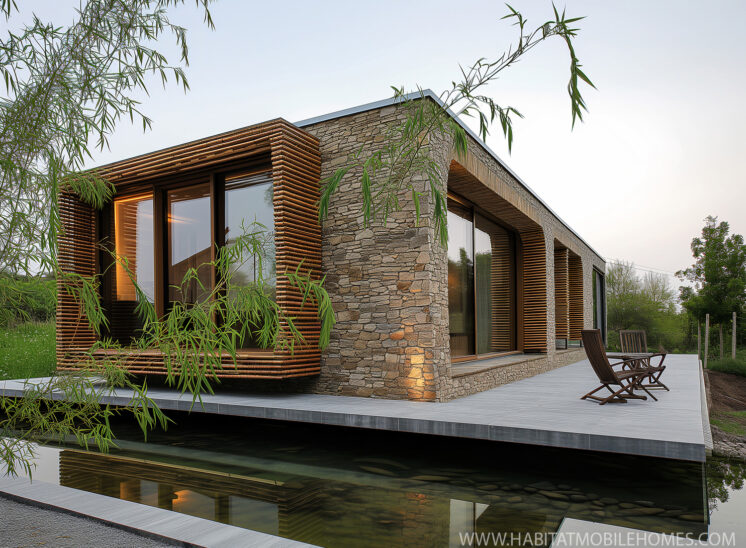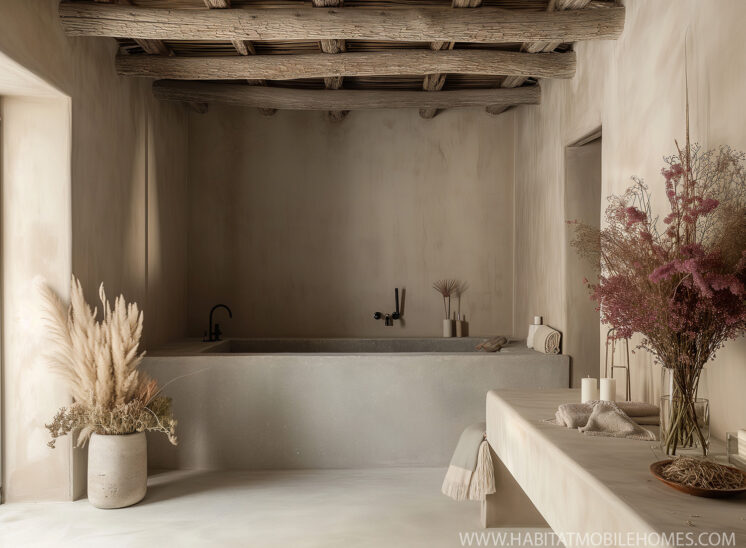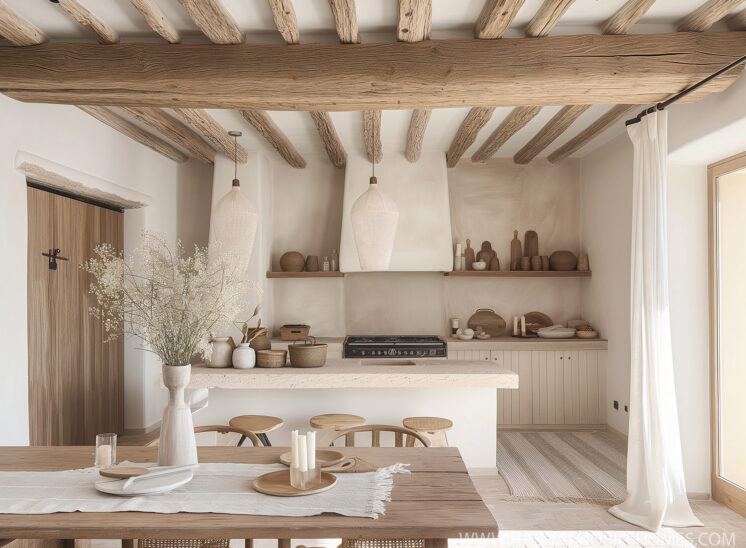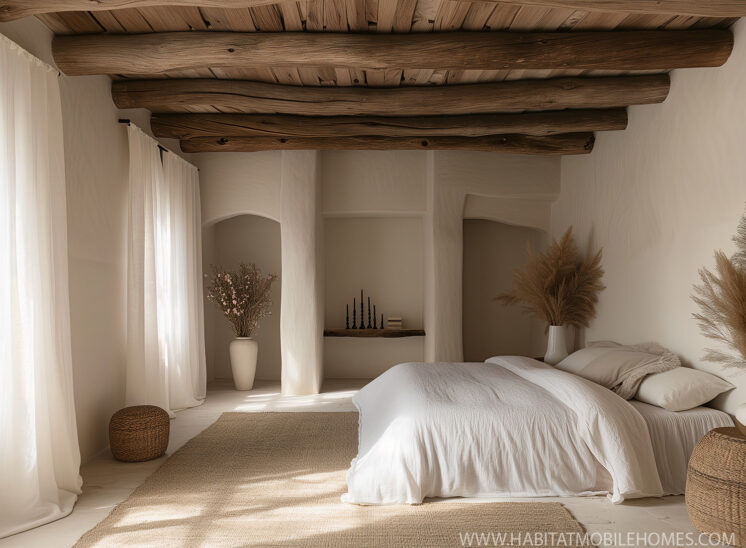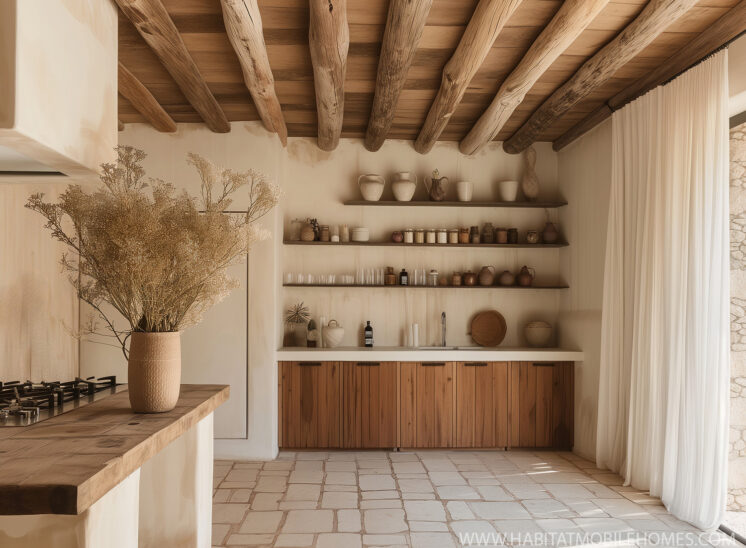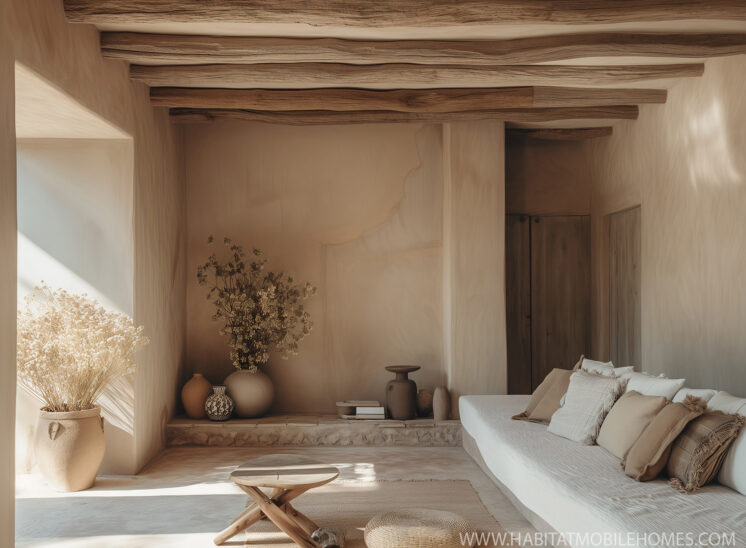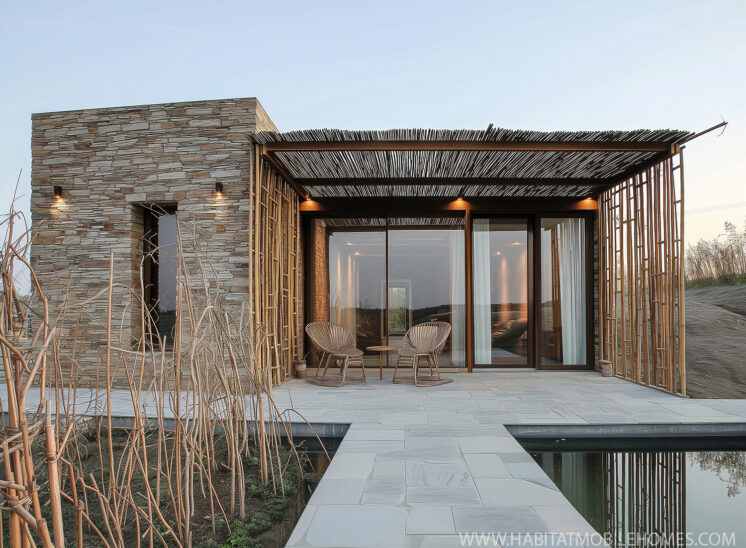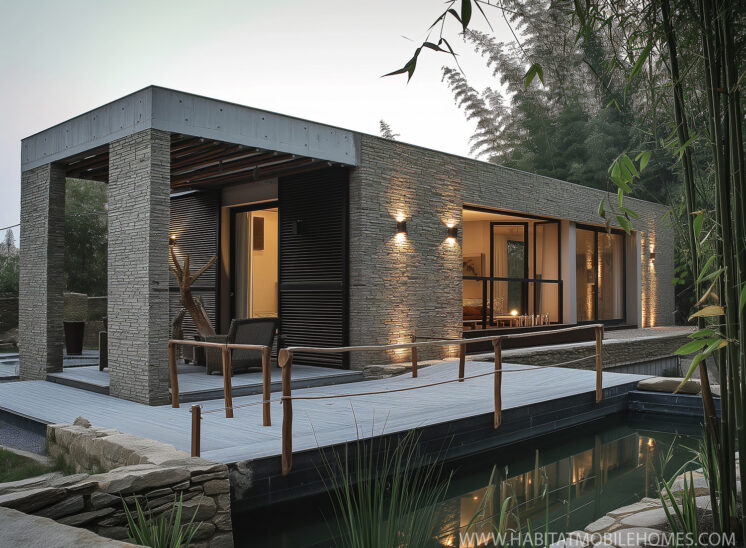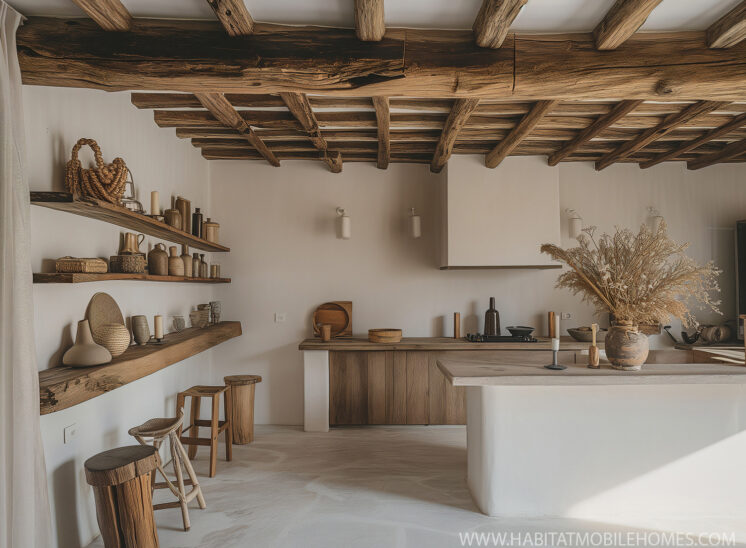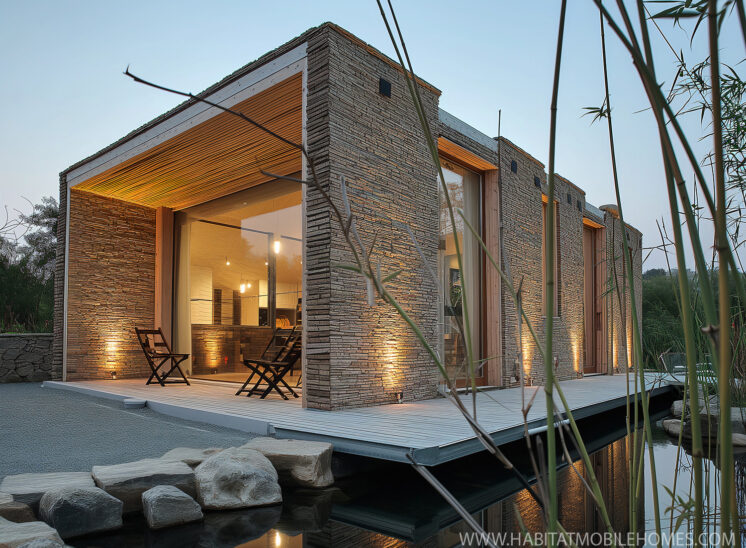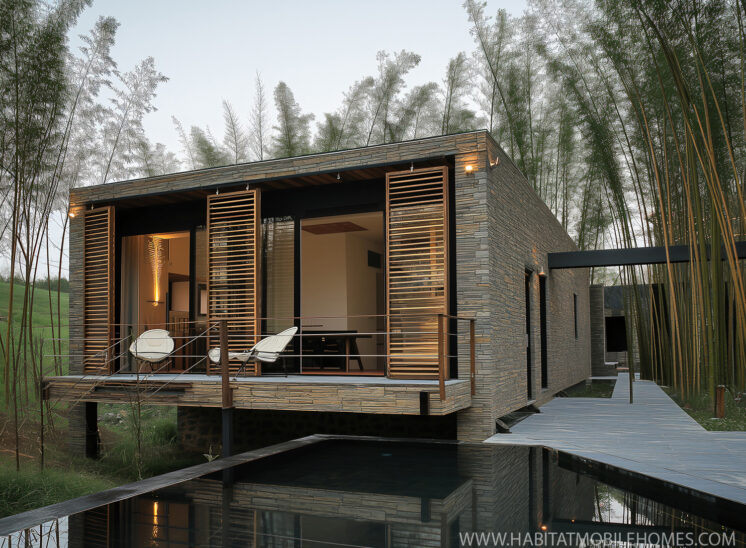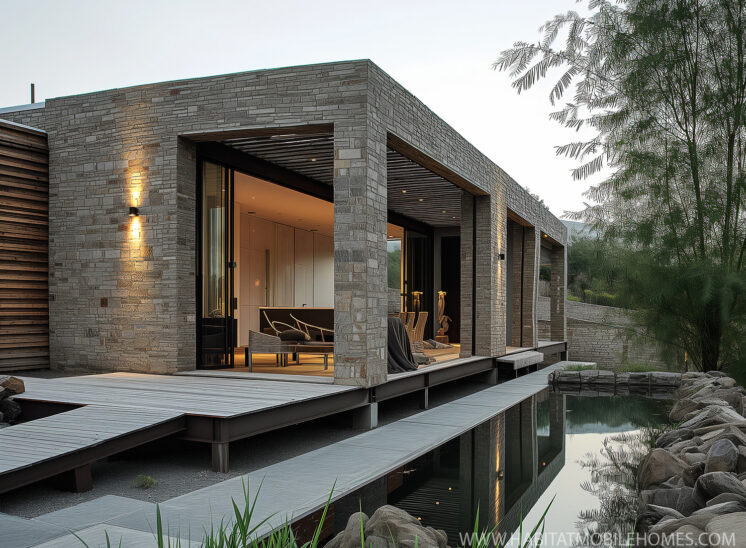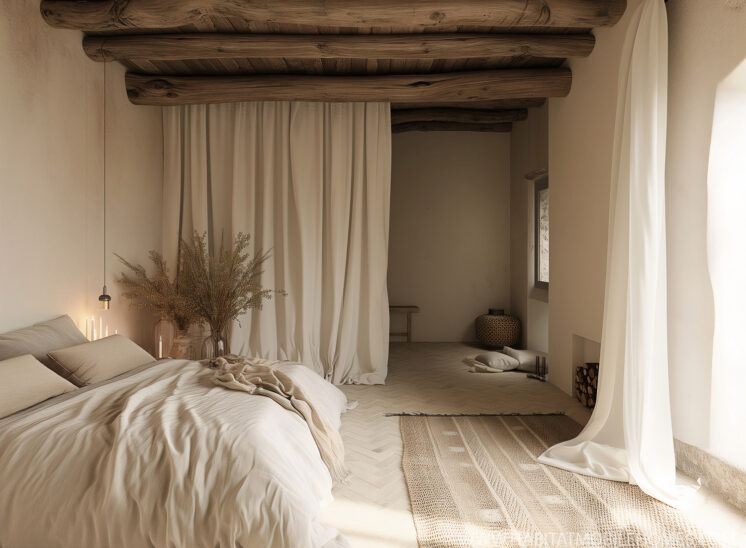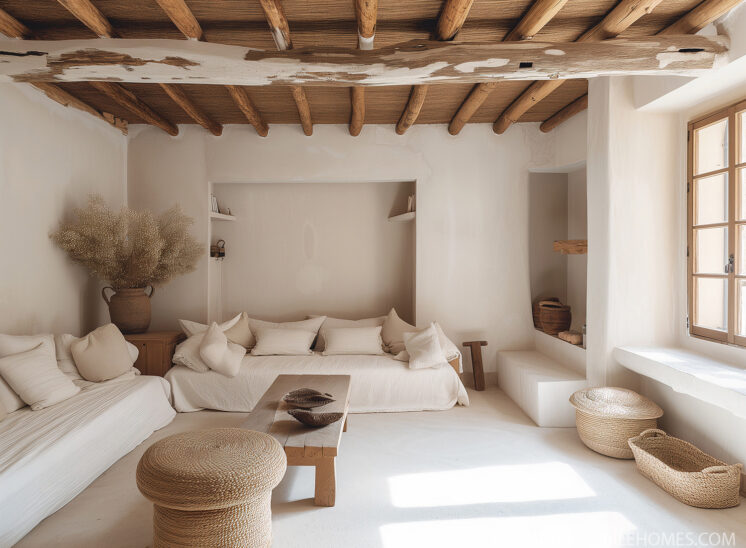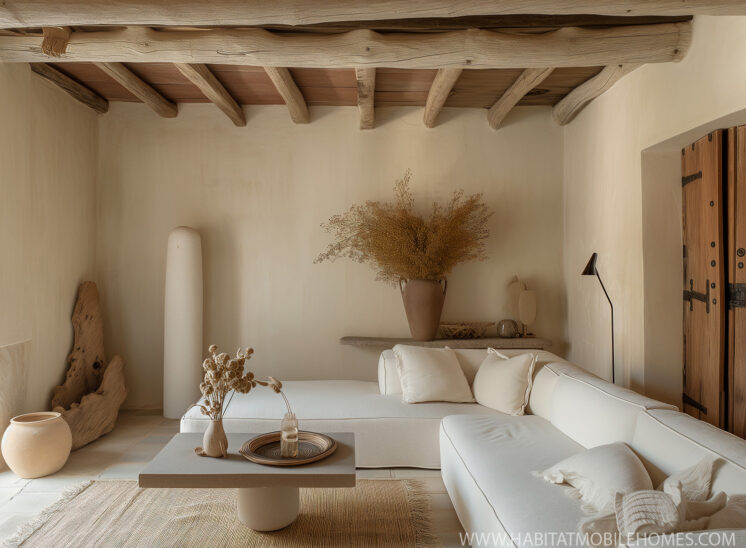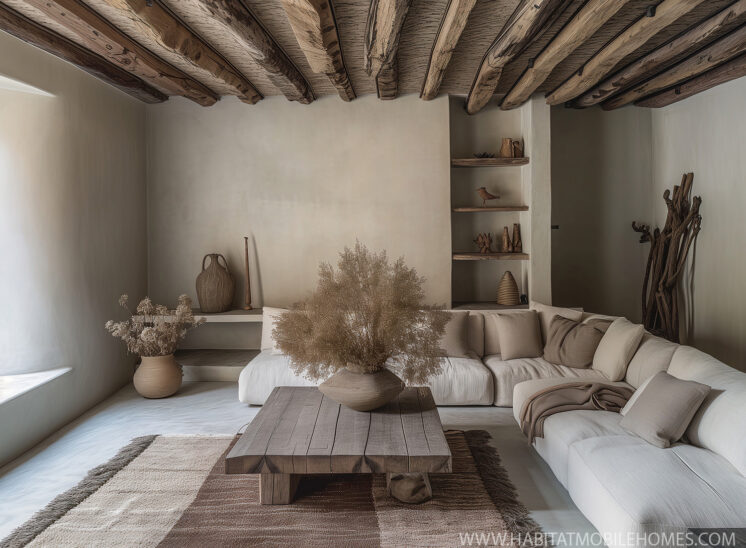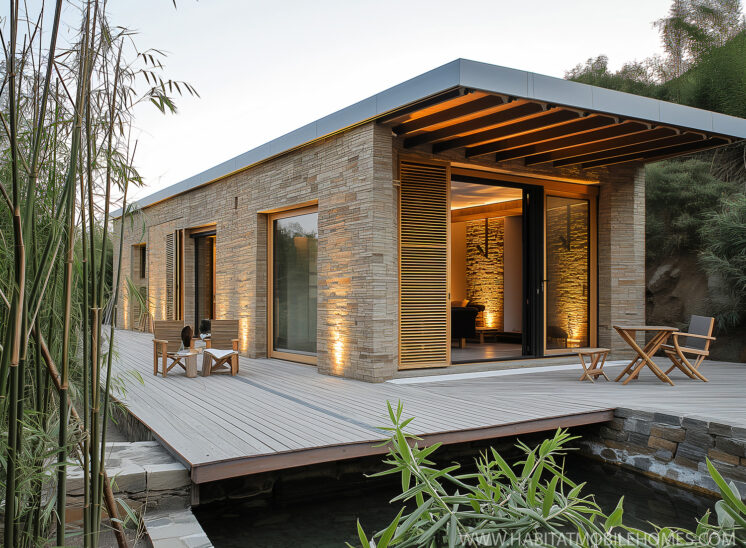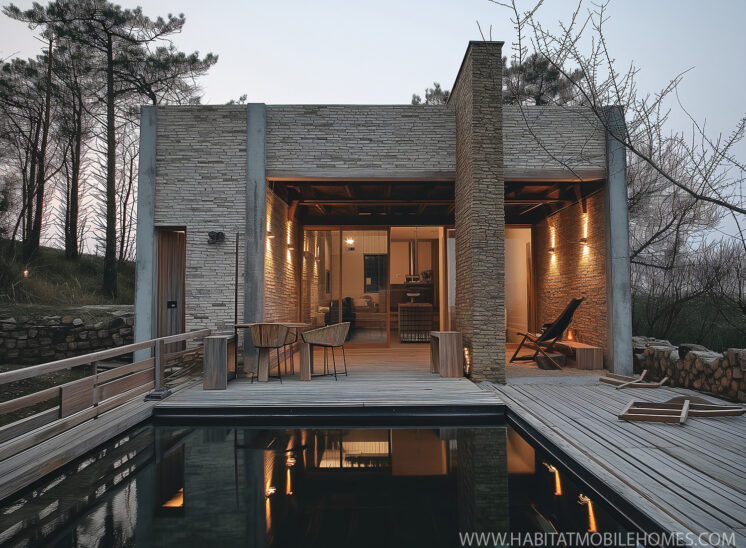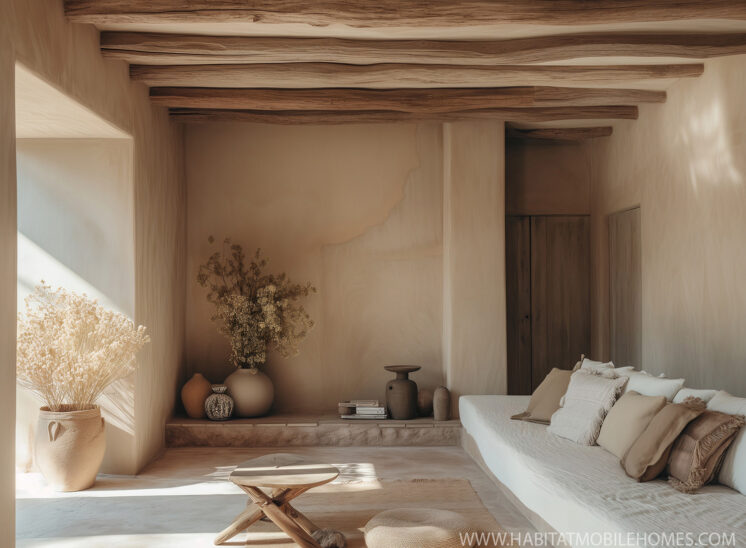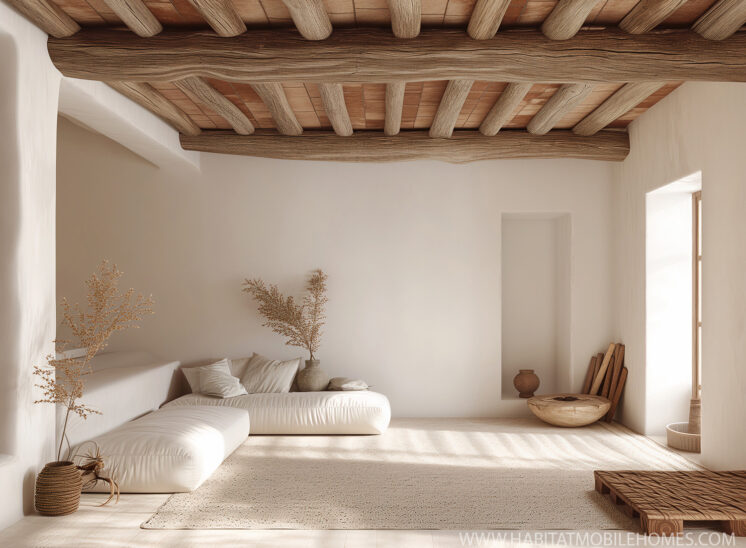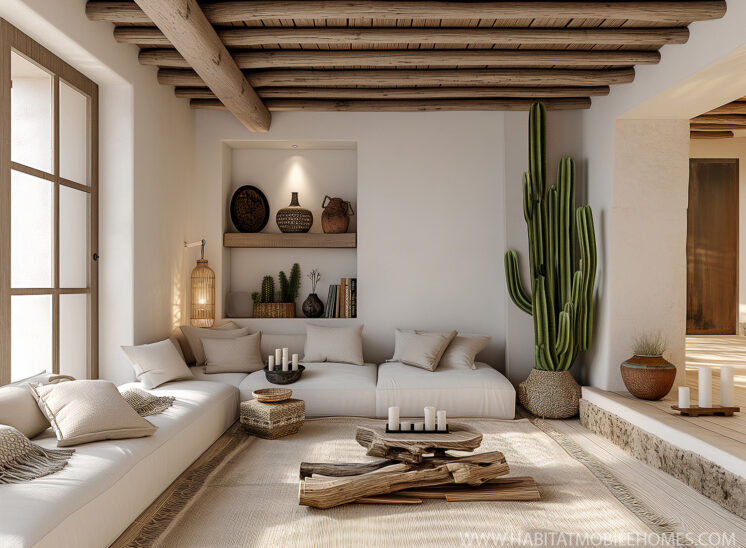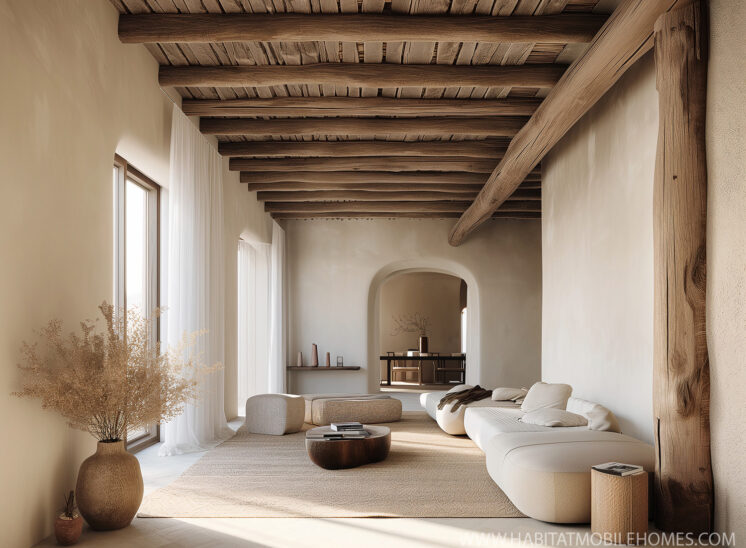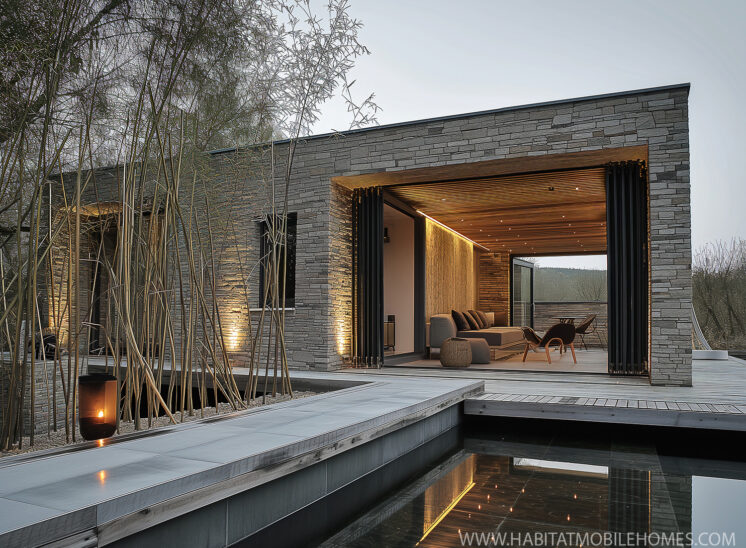The LagoonDriftWood Range: Where Design Meets Nature
Nestled at the water's edge and drawing inspiration from the tranquil scenery of lagoons, the LagoonDriftWood range by Habitat Mobile Homes Ltd presents a series of homes that are a testament to eco-conscious craftsmanship and architectural ingenuity.
With an ethos steeped in harmony with the environment, the LagoonDriftWood homes are a celebration of natural beauty and sustainable living. The use of weathered wood in their construction not only lends an organic aesthetic but also speaks of a commitment to eco-friendly building practices. Each structure is carefully placed to optimise natural light, embrace the surrounding views, and create a sense of continuity between the indoors and the outdoors.
Minimalism by the Water
The design philosophy of the LagoonDriftWood range is deeply rooted in minimalism. Clean lines and uncluttered spaces define the interiors, allowing residents to focus on the simplicity and serenity that life by the water offers. This minimalist approach extends to the homes' functionality, with intelligent design ensuring that every square inch is both beautiful and purposeful.
A Reflection of the Landscape
Each LagoonDriftWood home is crafted to reflect its setting. The materials echo the textures and colours found in the lagoon's unique ecosystem, with the muted tones of the cladding and decking materials blending seamlessly with the reeds and water that envelop the structures. These homes do not just sit in the landscape; they become a part of it.
Luxury in the Lap of Nature
While the LagoonDriftWood range may celebrate minimalism, it does not compromise on luxury. High-end finishes and modern conveniences ensure that living in a sustainable home does not mean forgoing the comforts that modern dwellers have come to expect. Each home is an enclave of luxury, with spacious terraces, panoramic windows, and bespoke fittings.
Sustainability at Its Core
At the heart of the LagoonDriftWood range is a commitment to sustainability. The materials are sourced responsibly, and the construction processes are designed to minimise environmental impact. These homes are not just built for today but are made to stand the test of time, both structurally and environmentally.
Q1: What is a Certificate of Lawfulness?
A1: A Certificate of Lawfulness is a legal document issued by a local planning authority in the UK which confirms that the use of land or buildings, such as siting a mobile home in a garden, is lawful for planning purposes.
Q2: When would I need a Certificate of Lawfulness for a mobile home in my garden?
A2: You would need a Certificate of Lawfulness if you plan to site a mobile home in your garden and use it as living accommodation to ensure that it is lawful under planning regulations and does not require planning permission.
Q3: How do I apply for a Certificate of Lawfulness?
A3: You apply by submitting an application to your local planning authority, including detailed plans of the mobile home and its intended use, and demonstrating that it complies with the relevant planning laws and regulations.
Q4: What information do I need to provide for the application?
A4: You'll typically need to provide a site plan, detailed drawings of the mobile home, a description of its intended use, and evidence that the use has been, or will be, continuous for at least four years if it's already in place.
Q5: Can a mobile home be used as a permanent residence under a Certificate of Lawfulness?
A5: No, a mobile home can typically only be used as ancillary to the main dwelling, such as for a family member. Using it as a separate, rentable living space would usually require planning permission.
Q6: How long does it take to obtain a Certificate of Lawfulness?
A6: The time frame can vary, but it generally takes several weeks for the local planning authority to process an application. Check with your local authority for specific timelines.
Q7: Is the process of obtaining a Certificate of Lawfulness different from planning permission?
A7: Yes, it is different. A Certificate of Lawfulness is to certify the lawfulness of existing or proposed use, whereas planning permission is to seek approval for development or use that does not have this established lawfulness.
